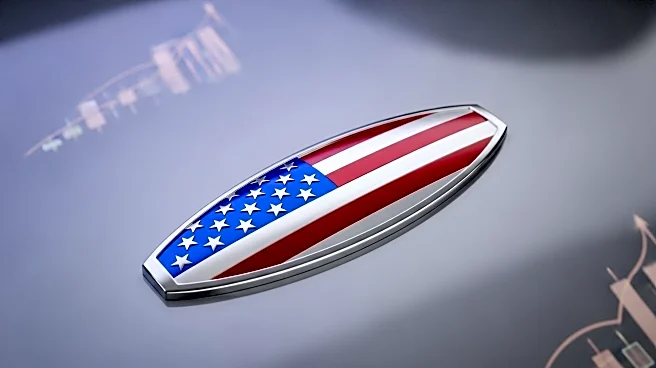What is the story about?
What's Happening?
President Trump is contemplating a plan to provide tariff relief to major automakers that manufacture or assemble most of their vehicles in the United States. This initiative aims to incentivize companies to hire U.S. workers and maintain local production. Automakers such as Ford, General Motors, Tesla, Toyota, and Honda, which already have significant assembly operations in the U.S., stand to benefit the most. The proposal suggests maintaining a 3.75% import offset for cars assembled in the U.S., potentially extending it to engines made domestically. This move is expected to help offset the 25% tariffs imposed on imported vehicles and parts, which amount to approximately $460 billion annually. The plan has already positively impacted the stock market, with Ford, Stellantis, and General Motors seeing notable gains.
Why It's Important?
The proposed tariff relief could significantly impact the U.S. automotive industry by reducing production costs and improving profit margins for companies with substantial domestic operations. This aligns with President Trump's broader trade strategy to encourage local manufacturing and reduce reliance on imports. If implemented, the plan could lead to increased investment in U.S. production facilities, potentially creating more jobs and boosting the economy. However, uncertainties remain regarding the inclusion of steel and aluminum in the relief package, which are critical components in car manufacturing. The decision could also influence global automakers' strategies, prompting them to expand their U.S. operations to benefit from the tariff breaks.
What's Next?
The administration has yet to finalize the details of the tariff relief plan, and it remains unclear whether it will cover steel and aluminum imports. The White House is also reviewing the economic impact of tariffs on heavy-duty trucks. Until President Trump signs the proposal into law, the automotive industry and investors are in a state of anticipation. If the plan is approved, it could lead to a shift in global automakers' production strategies, encouraging more companies to localize their manufacturing processes in the U.S.
















